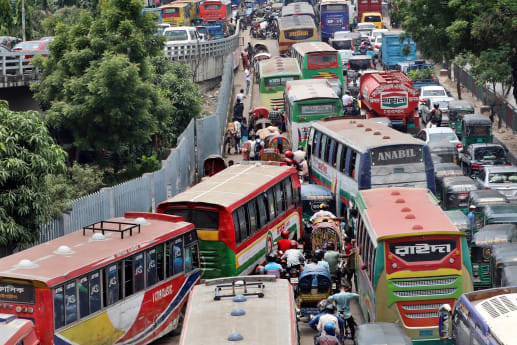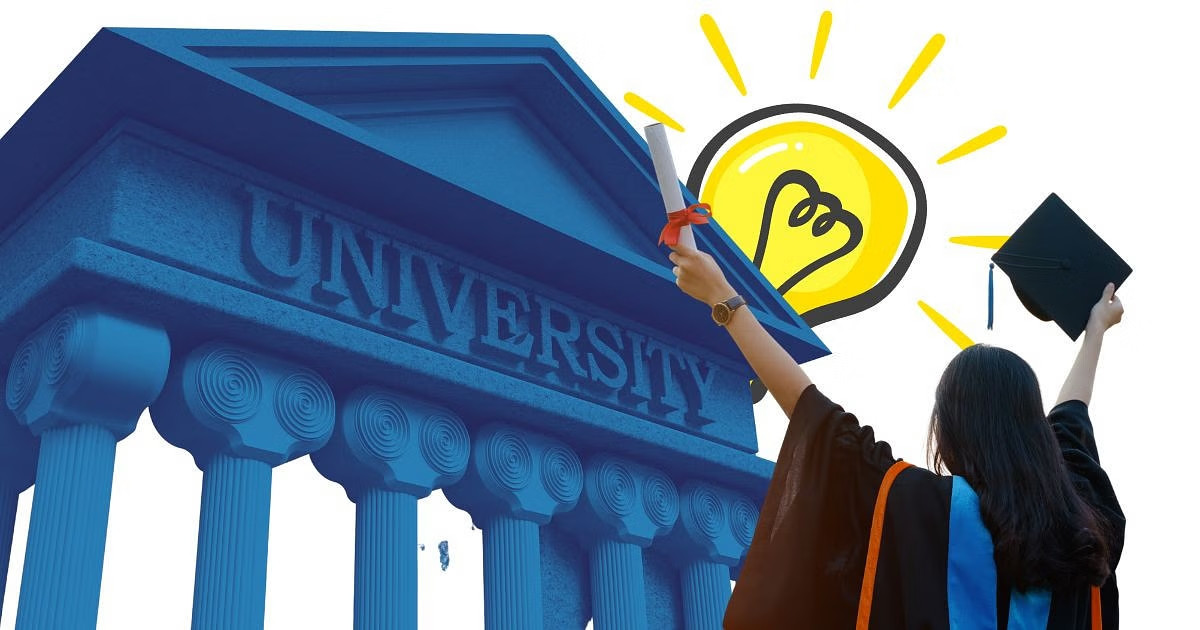Dhaka’s transport turmoil

Dhaka is the world's rickshaw capital. It is also arguably the mobile museum of broken buses. For a city that aspires to be smart, paddle rickshaws and rickety buses past their recyclable years seem to be an anathema. Yet, they reign in scandalous glory. To exacerbate the situation, the city has incorporated indigenous innovations to power the paddle rickshaws and disregarded the laws pertaining to dilapidated buses. The manoeuvring and manipulation of the public transport system remains a perennial source of pain and suffering for commuters and non-commuters alike.
The human-driven chain rickshaws and the city's buses, many of which are 30-40 years old, are symbolic of a failed public transport system. They are the dark shadows under the bright lights of the elevated expressway and metro rail. These outmoded and ageing vehicles are not only eyesores but also hazards. The slow-moving rickshaws on the right lane, the parked rickshaws on the left lane, and the whimsical buses on the middle lane symbolise the current state of chaos in the country. That does not mean private cars and bikes are innocent ones; they also monopolise the road whenever possible.
The other day, during a sudden rain shower, I noticed that the traffic flow on the flyover had stopped. Slowly and patiently, I drove to the source of the traffic clot, only to discover that the bikers had decided to stop under the expressway roof to save themselves from the rain, blocking almost the entire road. The problem, then, is not public transportation—it is the insensible, insensitive public. This public can be behind any number of wheels between two and eighteen. They can be without wheels, too. They can arbitrarily decide to walk through the middle of the road. They can think of city dividers as adventure camps.
Then why single out the rickshaws and buses? At least rickshaws are known for being eco-friendly, and the loud paintings on them with local or filmy motifs are part of our cultural heritage. You probably need to go to exhibitions and museums to witness the much-hyped rickshaw painting. For the other museum objects—the X-ray version of our rickety buses—you don't need to go further. They will glide through the city roads, their chassis exposed and their bodies pierced with battle marks and scars.
Frequently breaking down, these buses spew pollution and compete aggressively for passengers. They often block roads to add to traffic congestion. They participate in a chaotic competition to flex their connection with the underground mob. The drivers and conductors openly carry wooden sticks and steel rods to spread fear and conjure reverence. They allegedly operate in cahoots with police and political goons to manipulate routes and fares to their advantage, leaving commuters at their mercy. Such unholy alliances ensure that the status quo remains unchallenged. As a result, we have drivers without licence, and minors driving battery buggies and human hauliers.
There was a noble attempt to rehabilitate disabled people with battery-driven rickshaws. Soon, the corrupt system took control, leading the city to announce the introduction of a hybrid vehicle, capable of achieving speeds beyond the body's capacity. They would run at a deceptive speed, causing frequent clashes with people and vehicles. Their faulty aerodynamic design often led to overturning. The administration tried to remove this emerging menace without thinking it through. They swiftly banned battery-powered rickshaws. The drivers went on a violent protest, and the prime minister appeared as a saving grace. The vehicles now have a permanent seal of approval. The public got played. Now that the top had blessed the powered rickshaws, no one dared touch them.
The transport minister mildly chided bus owners for operating almost 40-year-old buses. He also believes that the government should have scrapped these buses long ago, as they do not align with its vision of a smart city. And lo and behold, there is a transport trade union leader who has the reputation of being a seasoned politician. He cowed his colleague by pointing out the loopholes in the road transport authorities, who do not even have the capacity to hand over licences or conduct fitness tests on time. The bodily issues got distracted as the transport leader went after the souls of the buses.
It makes sense that the government is reluctant to disrupt public transportation. According to one study, cycle rickshaw services account for 12.9 percent of city employment. These people send money home and contribute to our rural economy. Another report shows that there are about 1.1 million rickshaws in Dhaka that contribute Tk 30,000 crore to our economy. Banning rickshaws or withdrawing broken buses will create a shock wave that our system won't be able to sustain.
The solution to the crisis, therefore, must adopt a balanced approach with both immediate and long-term goals. We need to phase out the old buses and replace them with newer, more energy-efficient models. This will improve daily commuters' travel experiences while reducing pollution and improving road safety. Already, an attempt has been made to create a BRTA-dedicated bus lane on one of the city's main roads. But its long delay has already shown the dark side of syndicate behaviour and bureaucratic traps.
For rickshaws, we can reinvent the wheels by reintroducing dedicated lanes or limiting their mobility in by-lanes and alleys. Furthermore, we also need a gradual transition plan to phase out makeshift battery-driven rickshaws in favour of safer vehicles. This plan should include measures to support the livelihoods of those dependent on rickshaw earnings, perhaps through retraining programmes or microfinance initiatives to help them transition to other forms of employment.
Dhaka's vision of becoming a smart, modern city is hampered by these transport woes. By improving public transport infrastructure and implementing a just transition for rickshaw pullers, the city can move towards a future where the daily commute is not a battle but efficient and equitable.
Dr Shamsad Mortuza is professor of English at Dhaka University.
Views expressed in this article are the author's own.
Follow The Daily Star Opinion on Facebook for the latest opinions, commentaries and analyses by experts and professionals. To contribute your article or letter to The Daily Star Opinion, see our guidelines for submission.




 For all latest news, follow The Daily Star's Google News channel.
For all latest news, follow The Daily Star's Google News channel. 

Comments